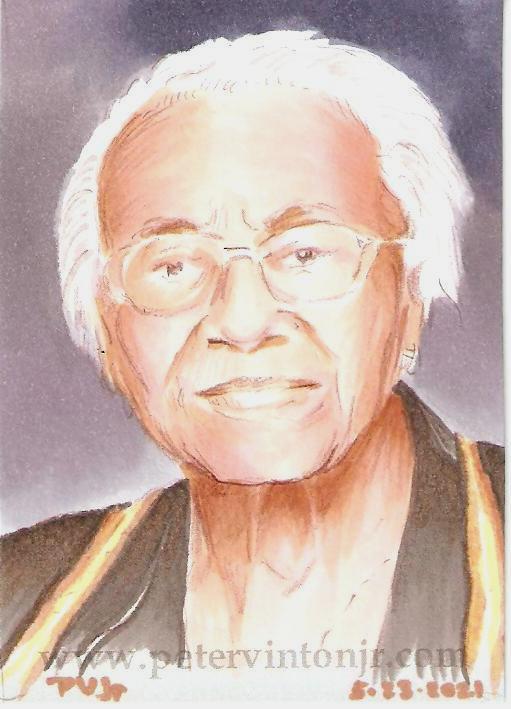
An ongoing illustrative history study
This piece originally posted 6/3/2021
Prelude | 85 | 86 | 87 | 88 | 89 | 90 | 91 | 92 | 93 | Email |
|---|
"I could not accept the segregation that existed while I was growing up. I really do believe in the Declaration of Independence. I really believe that all men, all women are created equally."
Meet civil rights attorney Frankie Muse Freeman. Growing up in rigidly segregated Danville, Virginia, Frankie knew from an early age that the legal profession was the area in which she could do the most good. After graduating from Howard University Law School in 1948, she spent the next two years contacting various law firms, but received no offers. Rather than give up or change careers, she opened her own practice in 1950. Two years later Freeman began her work in civil rights, becoming legal counsel to the NAACP. Significantly she headed up the legal team that filed a landmark suit against the St. Louis Housing Authority, the ruling of which ended legal racial discrimination in public housing in St. Louis. (Davis et al. v. the St. Louis Housing Authority)
Freeman worked as staff attorney, and then as general counsel, for the St. Louis Housing Authority all the way through to 1970. During that time, in 1964, President Johnson nominated her as the first woman (of any race) to serve as Commissioner of the U.S. Commission on Civil Rights --one of her first duties in that role was a trip to Mississippi to investigate the bombing of four black churches. She would go on to be reappointed to this role under Presidents Nixon, Ford, and Carter. In 1979 Carter appointed her to Inspector General of the Community Services Administration, a role she unfortunately had to leave in 1981 when President Reagan demanded the resignation of all Democrat-appointed inspectors general.
Freeman returned to St. Louis to practice. In 1982, Freeman joined 15 other former federal officials to form a bipartisan Citizens' Commission on Civil Rights. Freeman was inducted into the National Bar Association's Hall of Fame in 1990, and published her memoir, "A Song of Faith and Hope: The Life of Frankie Muse Freeman," in 2003. In 2011 received the NAACP's prestigious Spingarn Award. Freeman died in 2018 at the age of 101.
Next page - Lesson 90: Garrett Morgan, Sr.